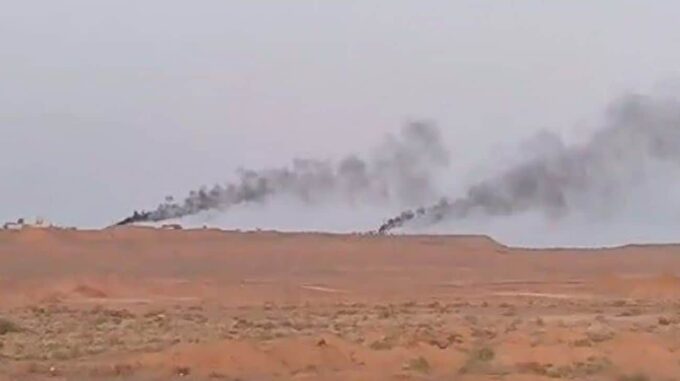Reduction of Tensions or a New Phase of Conflict?

Israel Strikes Iranian Nuclear Infrastructure Near Fordo In the nighttime hours of last week, the Israeli military announced the conduction of a large-scale operation against Iranian targets as part of efforts to destabilize the neighboring country's nuclear program. According to information obtained from Iranian sources, including the Fars Agency and reports from leading Western media, the Israeli army carried out a serious strike on missile installations and key infrastructure in Iran, notably near the most important nuclear facility — Fordo, located several hundred meters underground. It is evident that this attack has become one of the most serious active actions in the conflict between the two countries in recent months. Reports indicate that at least two powerful explosions were heard in the area close to the nuclear center, causing widespread concern over potential further escalations. Sources add that due to the deep underground location of the facility, overcoming it presents a real challenge for any military operation. The Chief of Staff of the Israel Defense Forces, Lieutenant General Eyal Zamir, stated recently that Israeli forces continue to carry out attacks on Iranian targets with full mobilization of resources. He emphasized that the country continues to pursue two main objectives — defensive and offensive — and warned that future actions are likely to become more complex and will require even greater preparation from the Israeli military. "We must be prepared for any scenario, including the most aggressive ones, and employ all our power to protect the country," he declared. Meanwhile, the commander of the Israeli Air Force, Major General Tomer Bar, highlighted the importance of presence in western Iran. "Every missile launch site we destroy saves the lives of our citizens," he stressed. According to Bar, conducting and supporting attacks against Iranian facilities helps reduce risks for military and civilian populations in the country. Additionally, reports from research and military sources indicate that Iran's air defense systems attempted to intercept an Israeli drone near the Fordo nuclear facility, but the operation remains ongoing with a new wave of strikes. As a result of this confrontation, aviation sources report that the Israeli drone was shot down, further raising concerns about escalation. The background of these events is quite intense. On the night of June 13, Israeli forces carried out a series of strikes against strategic targets in Tehran and its surroundings. They described this action as preventive, aimed at thwarting the development of Iran's nuclear program and neutralizing military targets within the country. Several key targets were destroyed, including the commander of the Islamic Revolutionary Guard Corps (IRGC), Major General Hossein Salami. Along with him, the chief of the army staff, Hatem al-Anbia; Major General Gholamali Rashed; the commander of Iran's armed forces, Mohammad Bagheri; and several nuclear scientists were killed. What happened significantly intensified the political discourse. Since June, Iranian military leaders have already threatened retaliation, emphasizing that Tehran will not remain indifferent and will respond to Israeli aggression "with a harsh counterattack." Brigadier General Abolfazl Shokarchi, spokesperson for the Iranian armed forces, announced Iran's intention to respond to any Israeli actions, adding that this response would be "strong and unexpected," and that the US would "pay a high price" for supporting such actions. U.S. presidential and diplomatic circles are, in turn, divided in opinion. Secretary of State Marco Rubio noted that the Israeli strikes were unilateral, and that Washington was aware of their possibility but did not participate. He emphasized that the U.S. does not support the attack, but also stressed the importance of maintaining diplomatic restraint and preventing a large-scale escalation of the conflict. Overall, these events further highlight the high levels of tension in the region and their potential to trigger a broader crisis in the Middle East. Evidence of this is Israel's unwavering stance on preventing Iran's nuclear development and increasing military actions in response to earlier strikes. Meanwhile, diplomatic discussions are ongoing regarding possible consequences and ways to de-escalate tensions, but concrete steps in this direction remain uncertain for now.

